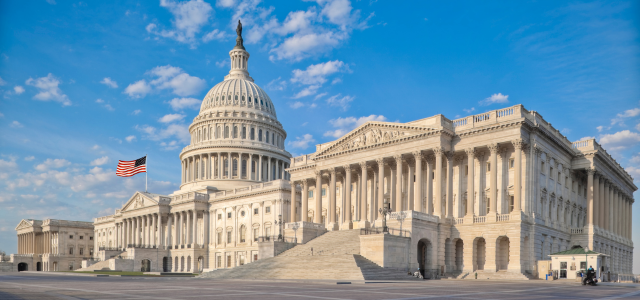On May 18, 2017, President Trump submitted a two-page letter to congress announcing his intention to revisit the North American Free Trade Agreement. Although the letter was a formality required by U.S. law, it also gave a surprising level of insight into the Trump administration’s intended purpose and scope of the revised agreement.
By calling for a “modernization” of NAFTA rather than a “renegotiation,” the letter signaled a narrower vision for the negotiations, limited to the terms of the agreement that had failed to keep up with the dynamic U.S. economy.
Such a goal is laudable. Today’s economy has evolved in ways unpredictable since the time NAFTA was conceived. The digital advertising industry is a prime example. In 1993, when NAFTA was signed into law, the digital advertising industry did not yet exist. It was not until 1994 that the first internet ad for AT&T appeared on the Wired Magazine website. Since that time, the digital advertising ecosystem has evolved into the primary driver of internet-enabled services, from email and social networks to news and entertainment, supporting one trillion dollars in annual U.S. GDP and six million U.S. jobs.
Under the modernization rubric, it is not surprising that the U.S. quickly identified the need for a revised NAFTA to address cross-border data transfers and data localization requirements. The Interactive Advertising Bureau has a long track record of supporting these policies. They provide basic guarantees that internet-enabled services will continue to function internationally without first being required to build expensive and duplicative global infrastructure. Canada and Mexico have shared this sentiment with the United States, signaling a commitment to addressing these issues in NAFTA.
And while this is an important step in the right direction, other areas critical to the continued success of the global internet economy have proven more contentious. Consider the treatment of “cultural industries” under NAFTA.
Since the mid-twentieth century, Canada has sought to protect Canadian cultural industries, including magazines, films, and television broadcasts, through policies that limit foreign competitors’ access to the domestic Canadian marketplace. Canada has justified these policies by arguing that cultural industries are unique from all other segments of the economy, serving a role in maintaining national identity and sovereignty. Others have challenged Canada’s claims, arguing that these policies are nothing more than blatant protectionism, giving Canadian media companies an unfair trade advantage by reducing foreign competition.
Regardless of the motives, these policies have created restrictive barriers to entry for U.S. media companies seeking to serve Canadian consumers, leading to a lower number of cultural exports from the United States. As a result, Canadian citizens’ access to foreign magazines, newspapers, and broadcasts has been limited as U.S. media companies find they are unable to compete on a level playing field with their Canada-based competitors.
When NAFTA was signed, these protections were included in the form of a broad ‘cultural exception’ that allowed Canada to maintain existing barriers and erect new barriers in the future. There is now discussion of extending these same policies to the internet through unfavorable tax treatment of non-Canadian online publishers, service providers, and technology companies.
If implemented, these policies would disadvantage one of the fastest growing sectors of the U.S. economy. They would create technical challenges, requiring industries such as the online advertising ecosystem to restructure the way they do business. Most importantly, they would run counter to the principle objectives of NAFTA by hampering the movement of goods and services between the Canada, Mexico, and the United States.
Equally worrisome is the negative precedent that such policies could set in future trade negotiations. Mexico, which had previously adopted the U.S. position on cultural industries, is facing increasing pressure to support Canada’s position on cultural exceptions. And as more countries recognize that they too can erect trade barriers for U.S. technology and media companies without consequence, there is little doubt that others will follow.
As the Trump Administration renegotiates NAFTA, we ask that they take a holistic and principled perspective of what a modernized agreement means to the U.S. economy by ensuring that the agreement prevents countries from using broad cultural exceptions to the detriment of our media and technology industries.




